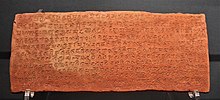You are currently logged-out. You can log-in or create an account to see more talks, save favorites, and more. more info
Dependent Origination Talks

Pratītyasamutpāda (Sanskrit: प्रतीत्यसमुत्पाद, Pāli: paṭiccasamuppāda), commonly translated as dependent origination, or dependent arising, is a key doctrine in Buddhism shared by all schools of Buddhism. It states that all dharmas (phenomena) arise in dependence upon other dharmas: "if this exists, that exists; if this ceases to exist, that also ceases to exist". The basic principle is that all things (dharmas, phenomena, principles) arise in dependence upon other things.
The doctrine includes depictions of the arising of suffering (anuloma-paṭiccasamuppāda, "with the grain", forward conditionality) and depictions of how the chain can be reversed (paṭiloma-paṭiccasamuppāda, "against the grain", reverse conditionality). These processes are expressed in various lists of dependently originated phenomena, the most well-known of which is the twelve links or nidānas (Pāli: dvādasanidānāni, Sanskrit: dvādaśanidānāni). The traditional interpretation of these lists is that they describe the process of a sentient being's rebirth in saṃsāra, and the resultant duḥkha (suffering, pain, unsatisfactoriness), and they provide an analysis of rebirth and suffering that avoids positing an atman (unchanging self or eternal soul). The reversal of the causal chain is explained as leading to the cessation of rebirth (and thus, the cessation of suffering).
Another interpretation regards the lists as describing the arising of mental processes and the resultant notion of "I" and "mine" that leads to grasping and suffering. Several modern western scholars argue that there are inconsistencies in the list of twelve links, and regard it to be a later synthesis of several older lists and elements, some of which can be traced to the Vedas.
The doctrine of dependent origination appears throughout the early Buddhist texts. It is the main topic of the Nidana Samyutta of the Theravada school's Saṃyuttanikāya (henceforth SN). A parallel collection of discourses also exists in the Chinese Saṁyuktāgama (henceforth SA).
| Title | Speaker | |
|---|---|---|
2007.04.01-serial.00205 Subject-and-Object, Daily Life, Passions, Dependent Origination, Breath, Impermanence... |
Apr 01 2007 |
|
2007.01.13-serial.00116A Buddha, Desire, Dependent Origination |
Jan 13 2007 |
|
Wheel of Birth and DeathSerial: SF-00969 Sunday Lecture: Children's stories: earth moving around the sun is one year; "stone soup"; thinking and not thinking; Tibetan wheel of birth and death - six realms, twelve-fold... Peace, Dependent Origination, Six Realms, Demons, Birth-and-Death, Liberation,... |
Apr 10 2005 Green Gulch Farm |
|
Wednesday LectureSerial: SF-01019 Work week: work practice, SFZC Mission Statement, two forms of Buddha's teaching: texts, etc, and common sense. Up to us to find satisfying relationship to Buddhist teaching, "... Perfect Wisdom, Buddha Mind, Realization, Complete Perfect Enlightenment, confusion,... |
Jun 05 2002 Green Gulch Farm |